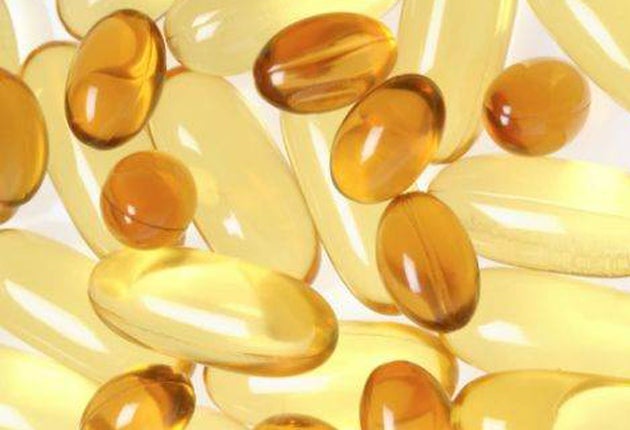Routine use of vitamin E may increase stroke risk

Your support helps us to tell the story
From reproductive rights to climate change to Big Tech, The Independent is on the ground when the story is developing. Whether it's investigating the financials of Elon Musk's pro-Trump PAC or producing our latest documentary, 'The A Word', which shines a light on the American women fighting for reproductive rights, we know how important it is to parse out the facts from the messaging.
At such a critical moment in US history, we need reporters on the ground. Your donation allows us to keep sending journalists to speak to both sides of the story.
The Independent is trusted by Americans across the entire political spectrum. And unlike many other quality news outlets, we choose not to lock Americans out of our reporting and analysis with paywalls. We believe quality journalism should be available to everyone, paid for by those who can afford it.
Your support makes all the difference.Doctors warned today against the routine use of vitamin E supplements after a study showed they could increase the risk of one kind of stroke.
It is the latest advice about the dangers of vitamins, which are hugely popular in the UK. It is, however, especially ironic in the case of vitamin E, which was once touted as the answer to cardiovascular disease.
Millions of people take multivitamins every day, many of which contain vitamin E. In the US, 13 per cent of the population take the vitamin supplement on the basis of early trials which suggested it could protect against heart disease.
In the latest review, an international team of researchers examined the results of nine trials involving more than 118,000 patients which showed that those taking the vitamin had a 22 per cent increased risk of suffering a haemorrhagic stroke (bleeding in the brain).
Although the vitamin reduced the risk of the more common ischaemic stroke (a blockage in the brain's blood supply caused by a blood clot) by 10 per cent, researchers say there are far more effective alternatives, such as by taking blood pressure-lowering or cholesterol-reducing drugs – which do not have the associated risks.
More than 111,000 people have a stroke every year and they are the third biggest cause of death in the UK. Those who survive are frequently left with disability. Writing in the British Medical Journal, the researchers from the US, France and Germany say: "Given the relatively small risk reduction of ischaemic stroke and the generally more severe outcome of haemorrhagic stroke, indiscriminate widespread use of vitamin E should be cautioned against."
A spokesperson for the Health Supplements Information Service said: "Given the importance of vitamin E as an antioxidant and for maintaining normal immune function, and the number of British people who do not meet the recommended daily amount, a vitamin product taken in recommended amounts is both safe and beneficial for health."
Join our commenting forum
Join thought-provoking conversations, follow other Independent readers and see their replies
Comments